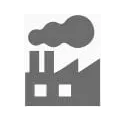by Patti Dees
Furnace filters do more than just block a little dust. Properly maintained, they protect both the HVAC equipment and the building’s occupants. Monitoring and changing furnace filters is a simple task that every air system maintenance schedule should include. But how often should you change your furnace filter? Here’s a quick guide.
What Does a Furnace Filter Do?
The purpose of the filter is simple — to remove particulates and microorganisms. Filters get better at removing particles over time, up to a point. As dust and microbes build up on the filter media, the openings of the pores become smaller and more particles are captured. However, the restricted pore openings reduce airflow and pressure drops across the system. If allowed to continue, the filter will “blow out,” letting all the particles it collected loose within the equipment.
Filters come in different efficiency ratings, sizes and qualities. While choosing a cheaper filter or one with a higher MERV rating may be tempting, either could negatively impact the system. Manufacturer recommendations focus on balancing optimal filtration with maintaining the required pressures through the system.
Importance of Furnace Filters
Furnace filters aren’t just crucial for maintaining the health of your HVAC system. They can protect your investment and improve your health.
Protecting Your Investment
Purchasing equipment is not the end of HVAC investment. Maintenance and operation costs continue well past installation. Many managers and owners look for ways to keep these costs low, and filters can help with that.
- Clean equipment and ducts run more efficiently. Less energy is required to produce the desired climate, and reducing energy waste lowers utility costs.
- Clean equipment lasts longer. Rather than spending time and money on reactive maintenance projects, staff can focus on preventive maintenance tasks and maximize the equipment’s lifecycle.
Protecting Your Health
Indoor air quality (IAQ) is important, and even more so since the start of the COVID-19 pandemic. Filters limit odors and catch dust and microbes that can grow mold in humid areas. They can also help block the spread of viruses and bacteria that cause illnesses. A building’s maintenance and health safety plans should incorporate current filter guidelines.
How Often Should You Change Your Furnace Filter?
A hospital in a dry climate will likely need to use a different schedule for changing the furnace filter than an office building in a humid area. To get the most out of a filter, begin with the manufacturer’s recommendations for filter size, efficiency rating and building type. Adjust the filter change schedule as needed based on occupancy use, local environment and seasonal changes.
The best method of determining when to change out a filter is by measuring the pressure differential rather than relying on visible dirt. Filters that look dirty may not have reached their optimal efficiency, and changing them prematurely leads to a waste of time, money, and resources. The pressure differential can be measured with stand-alone equipment or monitored with a building management system (BMS).
Outside an established schedule, maintenance staff will need to consider special circumstances. The adjustments made as part of the COVID-19 guidelines are one example. However, more mundane circumstances warrant a filter change outside the regular schedule as well. If a filter is damaged and allows air to bypass the filter, or if it is wet or shows signs of mold, it should be changed immediately.
Furnace Filter Best Practices
The point of a filter is to avoid getting dust or other contaminants in the system. Removing the filter exposes the system and makes it easy for particles to enter before a new filter is in place. To reduce the chance for dust to enter the system, consider the following tips:
- Turn off fans before removing the filter.
- Use clean rags and mops to clean the area before turning the fans back on.
- If possible, schedule filter changes when staff or occupants are not there to limit exposure to odors and dust that may be knocked loose.
Filters are critical to an efficient HVAC system. Professionals at Therma can assist owners and managers with preventative maintenance schedules that keep HVAC systems running at peak performance.
Patti draws on her background as a chemical engineer to share information with readers on technology, manufacturing, and construction.
Sources
Air Conditioning Heat Refrigeration News (ACHR News) – A Guide to Understanding HVAC Filter Maintenance
Rheem – 6 Reasons Why Changing Your Furnace Filter is So Important – Rheem Pro Partner
Environmental Protection Agency (EPA) – Air Cleaners, HVAC Filters, and Coronavirus (COVID-19) | US EPA
American Society of Heating, Refrigerating and Air-Conditioning Engineers (ASHRAE) – Filtration and Disinfection FAQ









